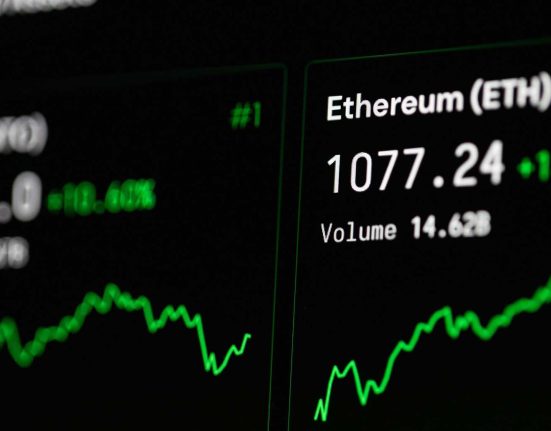Incentive Policies of the Malaysian Industrial Development Authority for High-Tech Manufacturing Enterprises
The Malaysian Industrial Development Authority (MIDA) has been a key player in driving the country’s industrial growth, especially in high-tech manufacturing. With the evolving global market, Malaysia recognizes the importance of attracting and supporting high-tech manufacturing enterprises. MIDA’s incentive policies are designed to create a conducive environment for businesses in this sector, offering benefits ranging from tax exemptions to investment allowances. These incentives aim to foster innovation, enhance technological advancements, and attract foreign direct investments (FDI) to Malaysia. High-tech manufacturing, which includes industries such as electronics, biotechnology, and robotics, is a priority area for the government to strengthen the nation’s economic competitiveness.
Overview of MIDA’s High-Tech Manufacturing Incentives
The Malaysian government has introduced various incentives to attract foreign and local investors into high-tech manufacturing sectors. These incentives, administered through MIDA, are tailored to promote industries that contribute to the development of advanced technologies and innovation. The main incentive categories include tax exemptions, grants, and allowances designed to reduce operational costs and encourage technological advancements.
1. Tax Exemption Programs
One of the primary incentives MIDA offers to high-tech manufacturing enterprises is tax exemption. Companies that qualify for the program can receive up to 100% tax exemption on their income for a certain number of years, depending on the level of investment and technological advancements. The tax exemption scheme is designed to reduce the initial financial burden on companies, making it easier for them to invest in research and development (R&D) as well as in cutting-edge machinery and equipment. Companies involved in high-tech fields such as robotics, automation, and semiconductor manufacturing are particularly eligible for these exemptions.
2. Investment Tax Allowance (ITA)
MIDA also offers Investment Tax Allowance (ITA) as part of its incentive policies. This allowance is granted to companies that make substantial investments in the manufacturing sector, particularly in high-tech industries. The allowance provides a tax relief on a percentage of the qualifying capital expenditure incurred during the investment period. ITA encourages businesses to invest in new technology, production facilities, and equipment that will enhance productivity and efficiency. High-tech manufacturing sectors such as electric vehicles, advanced machinery, and renewable energy production are targeted by this incentive.
3. Pioneer Status and Investment Tax Incentives
Another key incentive is the Pioneer Status, which grants eligible companies a tax holiday for up to 5 years. This incentive is especially valuable for enterprises that engage in the production of new and innovative technologies. It serves as a means to encourage companies to introduce products and processes that have a significant impact on the local economy. Furthermore, high-tech manufacturers may also qualify for Investment Tax Incentives that allow for deductions of qualifying capital expenditures, further easing the financial burden of setting up operations.
4. Grants for Research and Development (R&D)
MIDA actively promotes the development of new technologies through its R&D grants. These grants are designed to support high-tech enterprises engaged in cutting-edge research and innovation. Companies that conduct research in areas such as artificial intelligence, robotics, and biotechnology can access funding to develop prototypes, conduct testing, and bring innovative products to market. R&D grants are a crucial element of Malaysia’s strategy to become a global hub for innovation and technology.
5. Access to Infrastructure and Support Services
Beyond financial incentives, MIDA offers support in terms of access to infrastructure and a robust ecosystem for businesses in the high-tech manufacturing sector. MIDA provides companies with access to specialized industrial parks, which are equipped with state-of-the-art facilities and resources. These parks are designed to support the development of high-tech manufacturing operations and allow businesses to leverage the latest technologies, research institutions, and networks in the industry.
Additionally, MIDA offers advisory services to guide companies in navigating the regulatory landscape, securing financing, and maximizing the benefits of the incentive programs. This level of support ensures that high-tech enterprises can focus on their core operations while MIDA helps them streamline processes and make informed decisions.
6. Human Capital Development Programs
To ensure that Malaysia’s high-tech manufacturing enterprises have access to a skilled workforce, MIDA supports various human capital development programs. These programs are aimed at equipping workers with the skills necessary for the advanced technological sectors. Through collaborations with educational institutions and training providers, MIDA ensures that companies can recruit and develop the necessary talent for their operations.
Incentives related to workforce development include subsidies for training programs, internships, and educational support for employees to enhance their skills in fields such as robotics, artificial intelligence, and data analytics. This aligns with Malaysia’s goal of creating a sustainable workforce for its high-tech manufacturing sector.
7. Environmental and Sustainability Incentives
As the global manufacturing landscape increasingly emphasizes sustainability, MIDA also provides incentives for high-tech manufacturers that integrate environmental sustainability into their operations. These incentives include tax reductions and grants for companies that implement green technologies or adhere to international environmental standards.
Companies involved in clean energy production, waste management technologies, and sustainable manufacturing practices can access these incentives. MIDA encourages businesses to invest in eco-friendly technologies, contributing to Malaysia’s commitment to reducing its carbon footprint and supporting green initiatives.
Conclusion
The Malaysian Industrial Development Authority plays a pivotal role in attracting high-tech manufacturing enterprises to Malaysia by offering a diverse range of incentives. These incentives not only reduce the financial burden on businesses but also foster innovation, technological advancement, and sustainable development. Through tax exemptions, investment allowances, R&D grants, and infrastructure support, MIDA has created an ecosystem that is highly favorable for high-tech industries. The authority’s comprehensive approach also ensures that Malaysia remains a competitive player in the global manufacturing landscape, making it an ideal destination for businesses looking to thrive in the high-tech sector.
MIDA’s incentives provide a valuable opportunity for both local and foreign enterprises to capitalize on Malaysia’s growing high-tech manufacturing industry.














